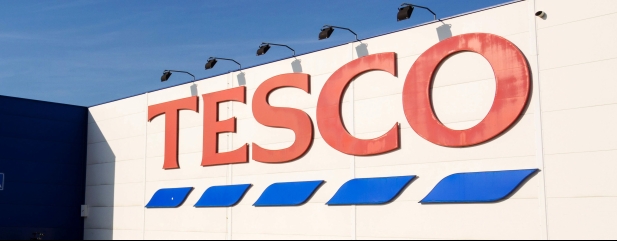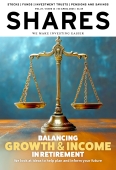Archived article
Please note that tax, investment, pension and ISA rules can change and the information and any views contained in this article may now be inaccurate.
Analysts predict double-digit sales and earnings growth at Tesco

As we have been documenting in Shares over the last few weeks, the big winner in the supermarket sector over the last year or so has been Tesco (TSCO), which has been steadily growing its market share at the expense of Asda and Morrisons while simultaneously holding off the threat from the discounters Aldi and Lidl.
That hasn't prevented a recent sell-off in the company's shares as investors react to the potential for Asda to launch a price war in the sector, something Tesco management may be expected to address when it posts full-year results on 10 April.
The company’s market share has risen from 27.3% a year ago to 27.9% as of the latest survey of grocery spending by consultants Kantar covering the 12 weeks to 23 March.
At the same time, Asda and Morrison’s combined share has fallen from 22.3% to 21% while the discounters account for 18.8% of spending against 18.1% a year ago.
As well as introducing an ‘Aldi price-match’ campaign, Tesco has leveraged the growth in its Clubcard loyalty scheme to bring ever more shoppers through its doors, while at the same time its Finest range continues to enjoy strong demand.
In its third-quarter and Christmas trading update the firm said it had achieved its highest UK market share since 2016 thanks to net switching gains from other supermarkets as it positioned itself to be the cheapest full-line grocer for a second year running.
When it reports its results for the full year to February 2025, analysts are predicting a 15% increase in group sales from £61.6 billion to almost £71 billion.
Operating profit is expected to rise by between 8% and 9% to a shade over £3 billion, above the firm’s guidance as of the third quarter, as it reinvests some its sales gains in lowering prices to drive volume growth, while EPS (earnings per share) are seen rising by 15% from 23.4p to 26.9p.
UK UPDATES OVER THE NEXT 7 DAYS
FULL-YEAR RESULTS
8 April: JTC, Property Franchise, Staffline
9 April: Churchill China, Oxford Biomedica, Saga
10 April: Brave Bison, Hvivo, Inspects Group, Tesco, US Solar Fund
FIRST-YEAR RESULTS
7 April: Applied Nutrition
TRADING ANNOUNCEMENTS
9 April: JD Sports Fashion
Important information:
These articles are provided by Shares magazine which is published by AJ Bell Media, a part of AJ Bell. Shares is not written by AJ Bell.
Shares is provided for your general information and use and is not a personal recommendation to invest. It is not intended to be relied upon by you in making or not making any investment decisions. The investments referred to in these articles will not be suitable for all investors. If in doubt please seek appropriate independent financial advice.
Investors acting on the information in these articles do so at their own risk and AJ Bell Media and its staff do not accept liability for losses suffered by investors as a result of their investment decisions.
Issue contents
Editor's View
Feature
Great Ideas
Investment Trusts
News
- Shares in Naked Wines pop to year-high on plan to unlock value
- Aston Martin Lagonda shares skid to new low on US tariffs
- Interest in European infrastructure and renewables continues to build
- S&P 500 endures worst quarter since 2022 on stagflation fears
- Why WH Smith was prepared to sell its High Street stores at bargain basement price

 magazine
magazine